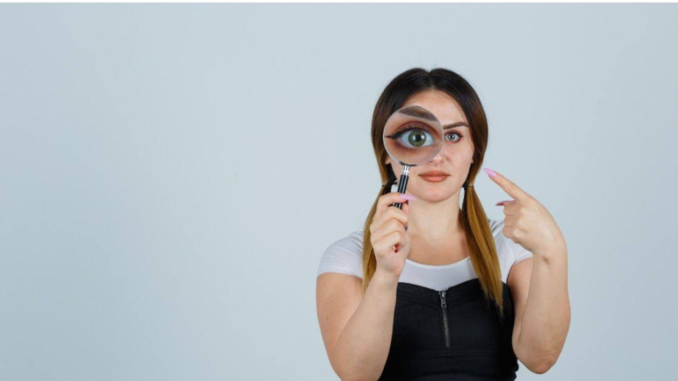
We are all very aware of the need to protect our skin when we do outdoor activities, especially in summer; however, eye care is still a pending issue. During the summer, eye problems manifest with more intensity than in other seasons of the year. This is because during the summer season, we are exposed to a greater number of factors that can harm eye health, and also, the warm environment of this season is conducive to the transmission of bacterial or viral eye diseases.
The main conditions of the eyes during the summer are dryness, conjunctivitis and eye irritation. There are eye pathologies associated with this time of year, such as keratitis. Keratitis is an inflammation of the cornea, there are various types and can occur for different reasons. Prolonged exposure to ultraviolet radiation, without a protective filter, can cause keratitis.
The symptoms of this pathology are not immediate and appear during the following hours of exposure to ultraviolet rays. Some of the symptoms associated with keratitis are: Tearing, decreased visual acuity, photophobia, irritation, itching, pain, or red eyes.
In summer, we also go to the beach and swimming pools to cool off. However, we must take into account the importance of protecting our eyes at all times with an approved filter. Water can reflect up to 30% of sunlight onto the surface. This factor causes ultraviolet rays to bounce.
Below we at God Service Eye Clinic explain the factors that can harm your visual health, to effectively care for your eyes in summer.
Reasons to reinforce eye care in summer
We are in daily contact with the sun and its radiation: ultraviolet radiation (UV), visible light and infrared light (IR). For this reason, when we practice outdoor activities we must also protect our eyes since multiple problems can be generated: burns on the skin, cornea and conjunctiva, degeneration of the elastic layers of the conjunctiva ( pinguecula ), cataracts, retinal burns, growth of scarring material on the cornea (pterygium ) and, as in the rest of the body, increased risk of skin cancer and ocular adnexa.
Prolonged exposure to ultraviolet rays without protection can also superficially damage the cornea (keratitis), causing blurred vision, photophobia, tearing, and the sensation of a foreign body. Another condition associated with summer is dry eye syndrome. Being in a hot environment with low humidity favours the evaporation of the tear. Air conditioning also influences said evaporation, since the environment dries out. Some symptoms of dry eye are dryness, itching, and blurred and fluctuating vision.
In summer there is an added risk: while the land reflects 10% of the light, the sea increases this reflection up to 30%. And if we go to the mountains, as we get higher, ultraviolet light injuries also increase. This is because we are less protected by the atmosphere.
What are the risk factors for the eyes in summer?
There are different risk factors that influence our eye health during the summer period. Most of them are environmental, but there are also others that are more diverse, such as age or genetics, such as eye colour. Here are some factors that pose a risk to the eyes in summer:
- The altitude: The higher, the less atmosphere to protect us and therefore, more radiation.
- Latitude: The closer to the equator, the greater the danger
- The time: between 12:00 and 16:00 the maximum amount of solar radiation is concentrated.
- Light reflection: Water is a natural reflective element, capable of enhancing the magnitude with which ultraviolet rays reach our eyes or our skin. This reflection is three times more in the sea than on land and nine times more in the snow.
- Cloudiness: Clouds do not protect us, they let through 90% of ultraviolet radiation. It is a mistake to think that we can do without sunglasses just because it is cloudy.
- Age: Beware of children, whose eyes are especially vulnerable to the sun. In addition, doing it from the first months of life will prevent future eye pathologies, since the child’s eye is more sensitive than the adult’s and also has a memory, as occurs with sunburn on the skin.
- The colour of the eyes: In general, all people who subject their eyes to the sun’s rays for a long time may have eye problems. However, people with light-coloured eyes are at higher risk, as their ability to filter sunlight is lower.
Precautions you should take for eye care in summer
To defend itself from solar radiation, the human eye naturally has eyelids and eyelashes. There are also some structures that block part of these rays, making it so that few can reach the retina.
The cornea and the crystalline lens are the ones that absorb UVA and UVB radiation to a greater degree. In addition, it is essential to use sunglasses with filters. These prevent the passage of 95-100% of ultraviolet radiation. The eyes are the only organs that allow light to enter the deep structures of the eyeball.
Remember that it is very important to take care of your eyes in summer to protect yourself from eye diseases and to be attentive to any sign that something is wrong. If you have any problem with the sun this summer, see your ophthalmologist. This will assess the possible injuries caused and indicate the necessary treatment. The purpose is to prevent the development of a more serious pathology.

Leave a Reply